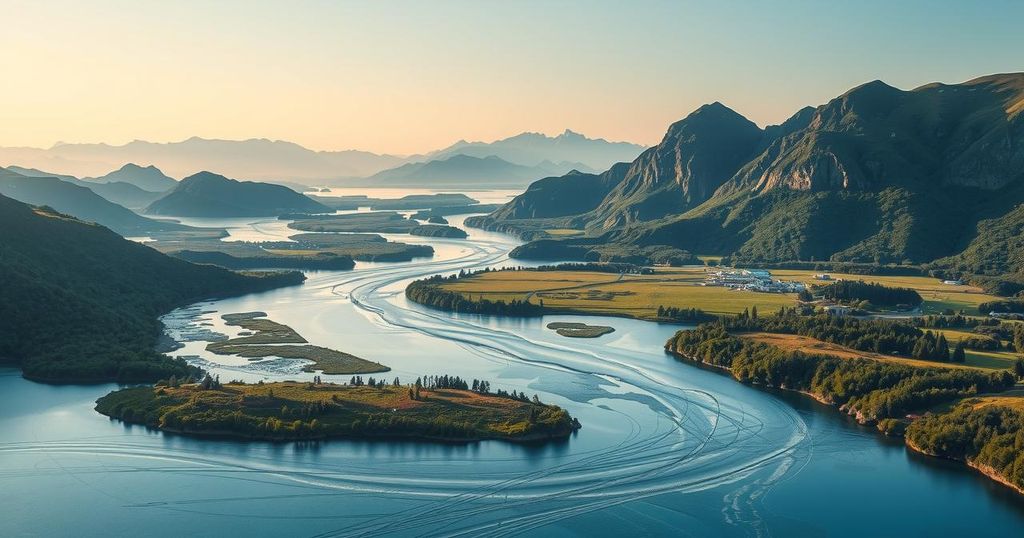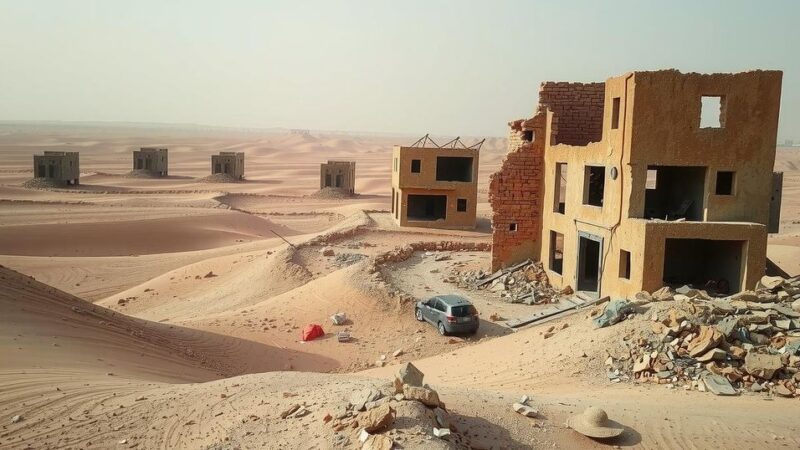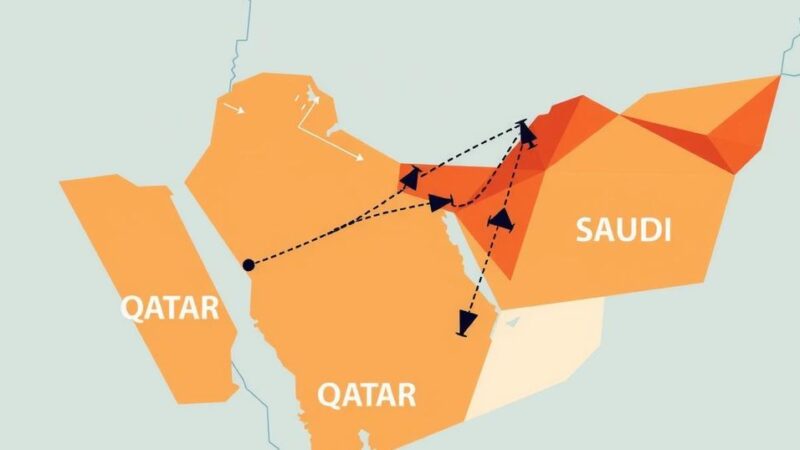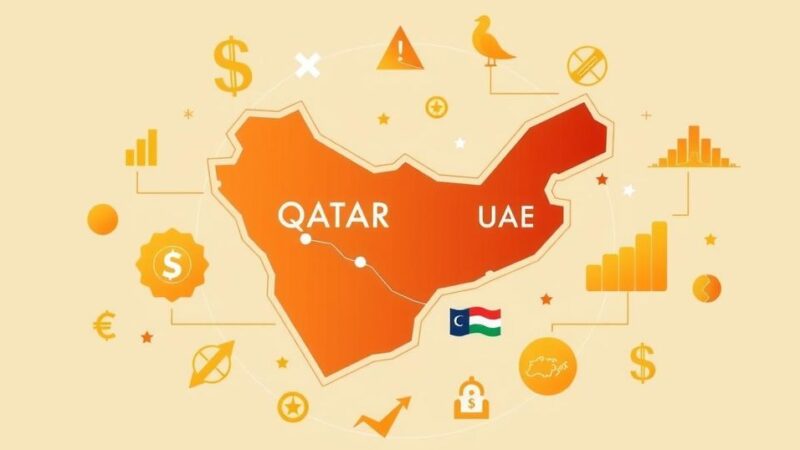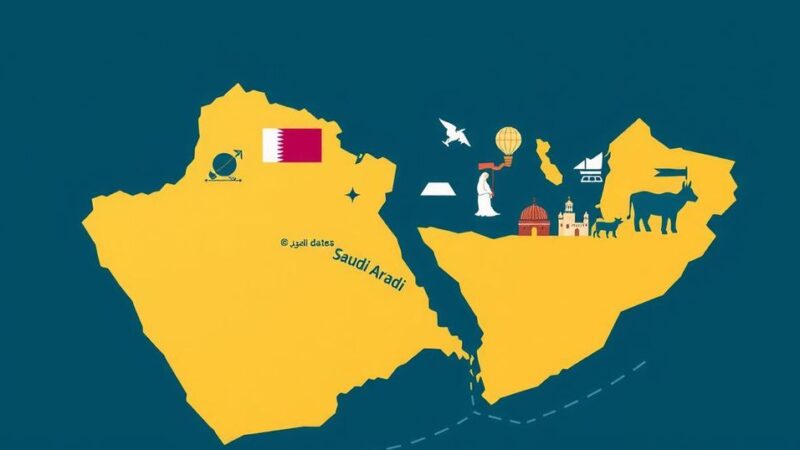The DRC crisis, incited by M23 rebels seizing eastern territory, involves multiple regional actors, including Rwanda, Burundi, Uganda, and South Africa. Congolese President Félix Tshisekedi seeks to reclaim lost lands while accusing Rwanda of backing the rebels. Regional tensions are escalating as neighboring countries navigate their own security concerns and political agendas, further complicating diplomatic efforts to resolve the conflict.
The current crisis in the Democratic Republic of Congo (DRC) is primarily fueled by the M23 rebels’ seizure of significant territories in the mineral-rich eastern region, leading to a humanitarian and diplomatic emergency. The conflict’s complexity is exacerbated by the involvement of neighboring countries with historical ties to the region. An emergency summit, convened by both East and Southern African blocs, seeks to deliberate on potential resolutions to the ongoing violence.
At the forefront is Congolese President Félix Tshisekedi, who aims to reclaim lost territories, specifically Goma, and stop further rebel advances. He accuses Rwandan President Paul Kagame of supporting the M23 through military means for the purpose of resource appropriation and destabilizing the DRC’s political landscape. Despite international acknowledgment of this support, which is evidenced in a UN report, adequate action in response remains lacking.
Rwanda’s Kagame occupies a critical position in the crisis, denying military assistance to M23 while asserting that Rwanda is defending its borders against perceived threats from armed groups associated with the Rwandan genocide. His narrative seeks to position the conflict as a domestic issue for the DRC, insisting on direct negotiations between Kinshasa and the M23, which Tshisekedi refuses, thus continuing Rwanda’s endeavor to maintain its influence in the eastern DRC, predominantly for security and economic interests, amid ongoing accusations of resource theft.
Burundi, sharing borders with both Rwanda and the DRC, remains a vigilant observer, with its troops previously engaged in operations against Burundian rebels in DRC territory. Burundi’s President Evariste Ndayishimiye has issued stern warnings, asserting that territorial advances by Rwanda could lead to conflict spilling into Burundi. His focus is on preserving his regime’s stability in the face of potential Rwandan encroachment into South Kivu province.
Uganda maintains a more ambiguous role in the crisis, having troops in the eastern DRC to counter threats from extremist groups. However, the nation is also accused of providing indirect support to the M23, using its territory as a base for their operations while simultaneously coordinating actions with the Congolese military. Uganda’s motivations are believed to revolve around retaining influence in the region and safeguarding its economic interests, particularly within the lucrative mineral sector.
South Africa contributes significantly to a Southern African regional force supporting the DRC and has been drawn into tensions between Rwanda and itself, with accusations exchanged after the deaths of South African soldiers in engagements with Rwandan troops. This conflict highlights the divided approaches toward the situation among East African Community (EAC) supporters of Rwanda and Southern African Development Community (SADC) members, raising concerns over the overarching implications of the conflict for regional stability.
The DRC crisis is characterized by a mix of internal strife and external influences revolving around territorial control and resource extraction. The involvement of neighboring countries like Rwanda, Burundi, Uganda, and South Africa reflects a complex interplay of historical grievances, security concerns, and geopolitical ambitions. The eastern DRC has long been a hotbed of conflict, driven by the region’s wealth in minerals and the ability of foreign governments to exert influence within it. This backdrop highlights the urgency for an effective resolution to halt the ongoing violence and restore stability in the region.
In summary, the DRC crisis is marked by intricate dynamics involving multiple nations with varying interests and motivations. President Tshisekedi aims to reclaim control from M23 rebels while dealing with foreign influence, particularly from Rwanda. Neighboring countries like Burundi and Uganda are also engaged in efforts to secure their territorial integrity and political stability. A coordinated regional effort is essential to address the crisis effectively and ensure lasting peace and security in the DRC and surrounding areas.
Original Source: www.bbc.com
